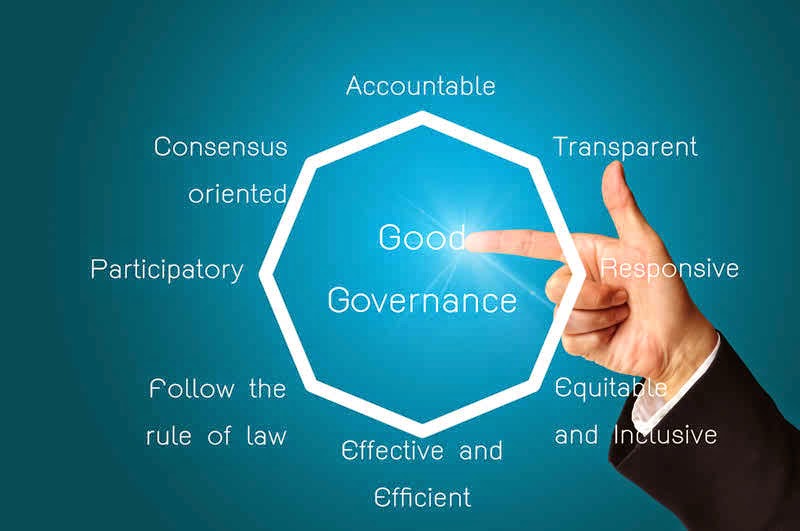Deportation dossiers: Trump’s AI-driven war on immigrants and freedom of speech – Reporters – France 24

Report on Escalating Deportation Measures and Implications for Sustainable Development Goals
A significant increase in deportation activities within the United States has been reported, marked by new enforcement strategies justified under national security. These measures raise substantial concerns regarding their alignment with the United Nations Sustainable Development Goals (SDGs), particularly those concerning justice, equality, and institutional integrity.
Analysis of Current Immigration Enforcement Policies
Expansion of Enforcement Operations
Immigration and Customs Enforcement (ICE) has intensified its operations nationwide. The scope of these enforcement actions has broadened considerably, with notable changes in tactics:
- Aggressive raids are being conducted across the country.
- Arrests are increasingly taking place in sensitive locations such as courthouses.
- Individuals are being targeted regardless of their criminal history, including those with dismissed cases or those lacking legal representation.
Third-Country Deportations and Infrastructure Expansion
The administration has resumed the practice of deporting migrants to third countries with which they have no established ties, such as El Salvador. Concurrently, a rapid expansion of migrant detention facilities is underway, alongside the recruitment of thousands of new ICE agents. These actions are framed as essential for national security but have significant human rights implications.
Conflict with Sustainable Development Goals (SDGs)
SDG 16: Peace, Justice, and Strong Institutions
The current enforcement climate presents a direct challenge to the principles of SDG 16, which aims to promote just, peaceful, and inclusive societies. Key areas of concern include:
- Erosion of Due Process: Human rights advocates report that due process is being systematically sidestepped, undermining access to justice for all.
- Criminalization of Immigration: Civil rights organizations argue that immigration itself is being treated as a criminal act, which contradicts the goal of fair and equitable legal systems.
- Threats to Fundamental Freedoms: The targeting of individuals, including students, for expressing political views (e.g., support for Palestinians) constitutes a threat to freedom of speech.
- Lack of Institutional Accountability: The prospect of an AI-driven deportation system raises alarms about future accountability, where automated processes could accelerate removals with minimal human oversight.
SDG 10: Reduced Inequalities
The policies disproportionately affect vulnerable populations, thereby exacerbating inequalities, contrary to the aims of SDG 10. By targeting migrants and asylum seekers, these measures deepen social and economic disparities and undermine efforts to ensure no one is left behind.
SDG 4 & SDG 8: Quality Education and Decent Work
The deportation of students for their activism directly impacts academic freedom and the pursuit of quality education (SDG 4). Furthermore, the detention and removal of individuals, such as asylum seekers, disrupt their ability to secure decent work and achieve economic stability, hindering progress toward SDG 8.
Case Studies: The Human Impact
The effects of these policies are illustrated through the experiences of individuals caught in the system. These cases underscore the profound human cost and the deviation from SDG principles.
- Neri Alvarado: A Venezuelan asylum seeker, detained and separated from his family, exemplifies the challenges faced by those seeking protection and the failure to provide a just process (SDG 16).
- Momodou Taal: A student forced to leave the U.S. for his advocacy on behalf of Palestinians, highlighting the infringement on free speech and its impact on quality education (SDG 4, SDG 16).
- Veronica Cardenas: A former ICE prosecutor who now defends migrants, her work reveals the internal struggles within the legal system to protect fundamental rights and ensure justice (SDG 16).
- Juan Manuel Pinto: A former employee of a data-mining firm, he warns of an expanding surveillance network that automates and accelerates deportations, posing a significant future threat to accountable institutions (SDG 16).
1. Which SDGs are addressed or connected to the issues highlighted in the article?
-
SDG 10: Reduced Inequalities
- The article discusses the targeting of specific groups, namely migrants and asylum seekers, based on their national origin and legal status. The policies described, such as “aggressive nationwide raids” and deporting migrants to third countries like El Salvador where they have no ties, highlight inequalities in how different populations are treated.
-
SDG 16: Peace, Justice and Strong Institutions
- This is the most prominent SDG in the article. The text focuses heavily on the justice system and institutional conduct. It explicitly mentions that “due process is being sidestepped,” “freedom of speech is under threat,” and there is a lack of accountability in institutions like Immigration and Customs Enforcement (ICE). The criminalization of immigration and the use of surveillance technology without oversight directly challenge the principles of justice and strong, accountable institutions.
2. What specific targets under those SDGs can be identified based on the article’s content?
-
Target 10.7: Facilitate orderly, safe, regular and responsible migration and mobility of people, including through the implementation of planned and well-managed migration policies.
- The article describes policies that are contrary to this target. The “deportation dragnet,” “aggressive nationwide raids,” and deporting individuals to countries where they are not citizens are examples of migration policies that are not safe, orderly, or responsible.
-
Target 16.3: Promote the rule of law at the national and international levels and ensure equal access to justice for all.
- The article directly addresses violations of this target. It states that agents are arresting immigrants “even those whose cases were dismissed or who lack legal representation.” The warning from human rights advocates that “due process is being sidestepped” and the struggle of a migrant defender to “protect her clients” show a failure to uphold the rule of law and ensure equal access to justice.
-
Target 16.6: Develop effective, accountable and transparent institutions at all levels.
- The article raises concerns about the lack of accountability and transparency within ICE. The warning about a “new era of AI-driven deportation… with little oversight or accountability” and the concerns from a former Palantir employee about a “surveillance dragnet” point to institutions operating without the necessary transparency and accountability.
-
Target 16.10: Ensure public access to information and protect fundamental freedoms, in accordance with national legislation and international agreements.
- This target is relevant due to the article’s claim that “freedom of speech is under threat.” The specific case of Momodou Taal, a student “forced to leave the United States for speaking out in defence of Palestinians,” serves as a direct example of a fundamental freedom being violated.
3. Are there any indicators mentioned or implied in the article that can be used to measure progress towards the identified targets?
-
For Target 10.7:
- Rate of deportations: The article states that deportations “have surged,” making this a clear quantitative indicator.
- Number of individuals deported to third countries: The specific mention of deportations to El Salvador for non-Salvadorans is a measurable indicator of irresponsible migration policies.
-
For Target 16.3:
- Proportion of immigrants facing deportation without legal representation: The article implies this is a significant issue by noting that agents arrest those who “lack legal representation.”
- Number of arrests that sidestep due process: This can be measured by tracking arrests of individuals whose cases were already dismissed, as mentioned in the article.
-
For Target 16.6:
- Existence of oversight and accountability mechanisms for AI-driven systems: The article’s concern about “little oversight or accountability” implies that the absence or presence of such mechanisms is a key indicator.
-
For Target 16.10:
- Number of verified cases of individuals facing punitive action for exercising freedom of speech: The specific example of Momodou Taal being forced to leave the country for his speech acts as a qualitative and potentially quantifiable indicator of threats to fundamental freedoms.
4. Table of SDGs, Targets, and Indicators
| SDGs | Targets | Indicators |
|---|---|---|
| SDG 10: Reduced Inequalities | 10.7: Facilitate orderly, safe, regular and responsible migration and mobility of people… | – Surge in the number of deportations. – Number of migrants deported to third countries with which they have no ties. |
| SDG 16: Peace, Justice and Strong Institutions | 16.3: Promote the rule of law… and ensure equal access to justice for all. | – Arrests of immigrants without pending cases, with dismissed cases, or lacking legal representation. – Sidestepping of due process in deportation procedures. |
| 16.6: Develop effective, accountable and transparent institutions… | – Use of AI and surveillance for deportations with “little oversight or accountability.” | |
| 16.10: Ensure public access to information and protect fundamental freedoms… | – Number of individuals forced to leave the country for exercising freedom of speech (e.g., speaking in defense of Palestinians). |
Source: france24.com

What is Your Reaction?
 Like
0
Like
0
 Dislike
0
Dislike
0
 Love
0
Love
0
 Funny
0
Funny
0
 Angry
0
Angry
0
 Sad
0
Sad
0
 Wow
0
Wow
0










































































